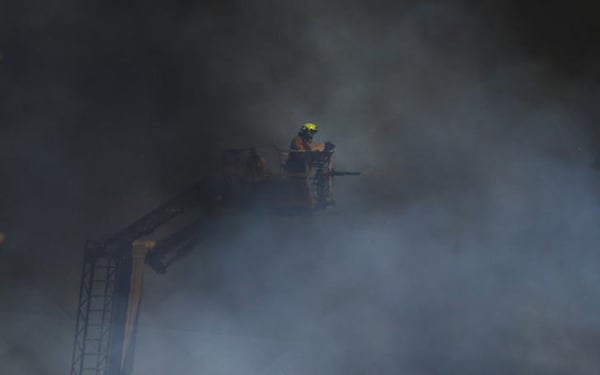Heart attacks lead as most common cause of death for firefighters

(Reuters) - Firefighters’ physical exertion and exposure to extreme heat may trigger the formation of blood clots and prevent blood vessels from relaxing – the recipe for a heart attack - a small experiment suggests.
Heart attacks are the most common cause of death among on-duty firefighters, and they are much more likely to occur during or shortly after work to subdue a fire, said senior study author Nicholas Mills of the British Heart Foundation Center for Cardiovascular Sciences and the University of Edinburgh.
“We found a direct link between the heat and physical activity levels encountered by firefighters during their duties and changes in blood clotting that would increase their risk of suffering a heart attack,” Mills said by email.
Heart attacks occur when an artery leading to the heart becomes blocked, stopping the flow of blood to the muscle and damaging it.
To assess the heart attack risk tied to intense heat and exertion, researchers randomly selected 19 non-smoking, healthy firefighters from the Scottish Fire and Rescue Service to participate in two fire simulation exercises two weeks apart.
During these exercises, participants attempted to rescue a dummy victim weighing 176 pounds from a two-story structure as temperatures reached upwards of 400 degrees Celsius (752 degrees Fahrenheit).
Each time, participants wore heart rate and blood pressure monitors starting 30 minutes before the exercises and for 24 hours afterwards to see what changes might happen in the body to make a heart attack more likely.
The monitors continuously assessed heart rate, heart rhythm and the strength and timing of electrical impulses passing through each part of the heart.
Firefighters’ core body temperatures increased about two degrees Fahrenheit on average during the simulation exercises and remained high for three to four hours afterwards, researchers report in Circulation.
Participants had lower blood pressure immediately following the exercises, which researchers suspect is due to dehydration and increased blood flow to the skin to help the body cool down.
In addition, the blood became stickier and more likely to form clots, the experiment found. This probably happened due to a combination of fluid loss from sweating and an inflammatory response to heat that made the blood become more concentrated and more likely to clot, the researchers conclude.
Blood vessels also didn’t relax properly even when the firefighters took medication.
Beyond its small size, other limitations of the study include the possibility that firefighters might encounter other stressors on the heart in real life that weren’t present in the simulations, such as smoke or psychological stress, the authors note. All of the firefighters in the experiment had previously done training exercises at the same simulation center, which might also cut down on stress during the experiment.
Even so, the findings confirmed previous research on the heart attack risk faced by firefighters and offered fresh evidence of how this work might lead to heart muscle damage even in otherwise healthy firefighters, said Dr. Stefanos Kales a researcher at Harvard Medical School and author of an accompanying editorial.
“It is very rare and unusual for a healthy person without heart disease to have a heart attack even under such extreme conditions,” Kales said by email. “However, a person who appears healthy, but who has unrecognized coronary blockages and/or heart enlargement could succumb to an acute cardiac event under these conditions.”





